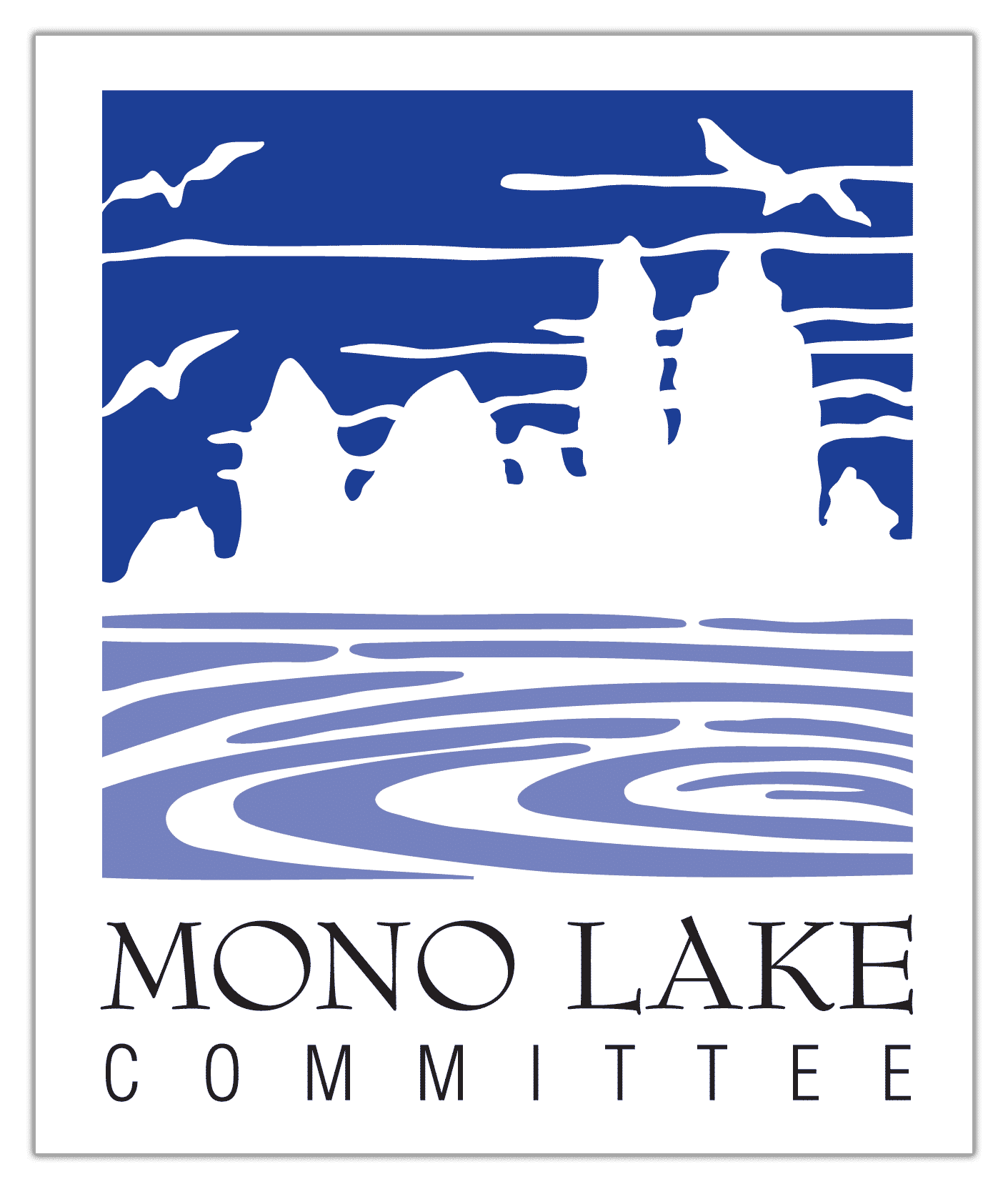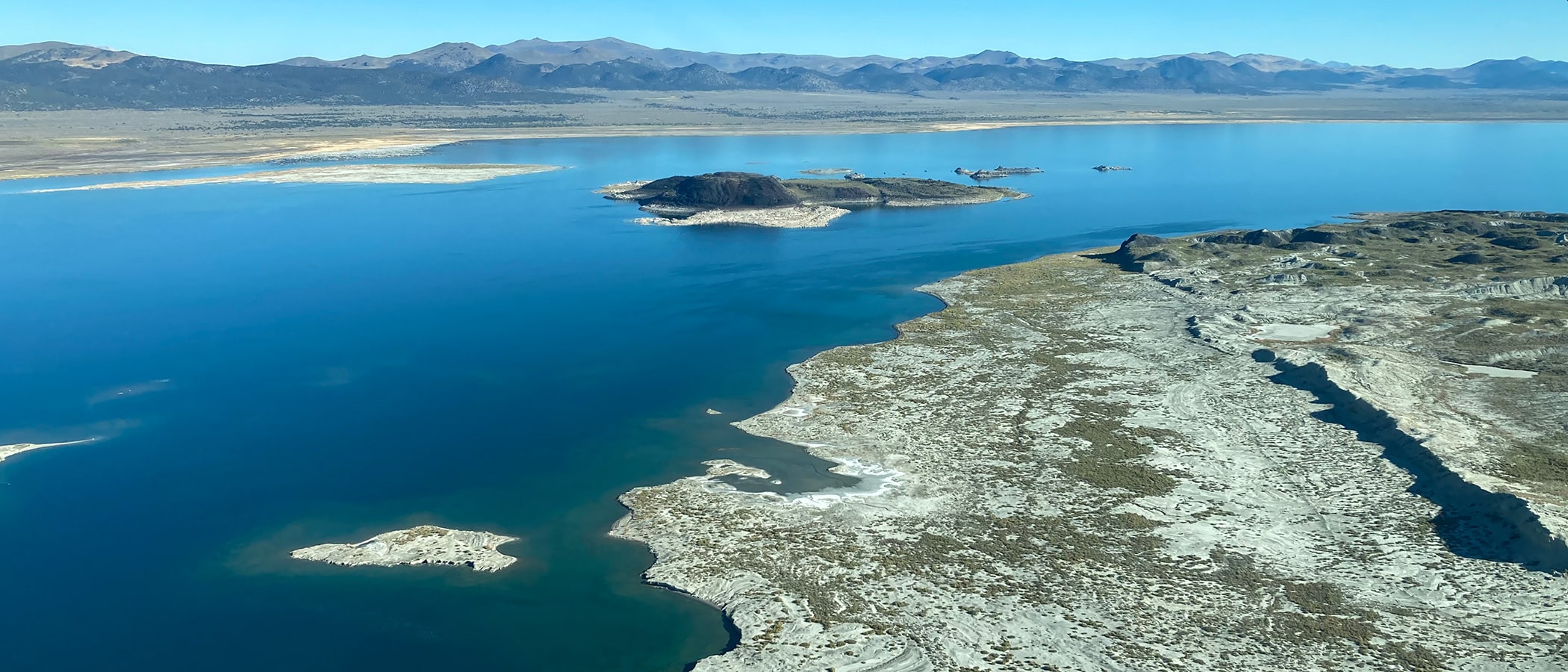
Since 1993, the Mono Lake Committee has honored individuals who have made extraordinary contributions to champion Mono Lake.
The public trust is an affirmation of the duty of the state to protect the people’s common heritage in the streams, lakes,
and tidelands…
—California Supreme Court, 1983
Photo courtesy of Jeff Sullivan.
Defender of the Trust award recipients
2024: Marc Del Piero
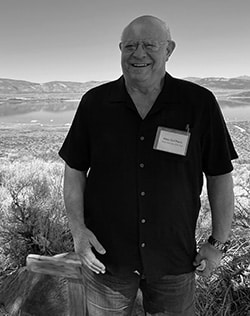
Marc Del Piero served as the attorney member of the California State Water Resources Control Board from 1992 to 1999 and ran the lengthy Mono Lake hearing that led to Decision 1631, the decision to save Mono Lake. The hearing 30 years ago lasted for 46 days and many nights. It involved 14 formal parties, 17 attorneys, and more than 125 witnesses. Over 1,000 exhibits were introduced into the evidentiary record, and the transcripts ran to 30,000 pages. Marc led a meticulous, deliberate, and fair hearing process. Such precision was necessary for the first-of-its-kind effort to identify and protect Mono Lake’s Public Trust values. In Marc’s hearing room Mono Lake, its ecosystem, wildlife, and Rush, Lee Vining, Walker, and Parker creeks all finally got their day to shine.
2018: Peter Vorster
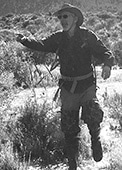
Peter’s support of the Mono Lake Committee spans four decades—from the early days in Lee Vining galvanizing support for the lake to providing expert testimony to courts and the State Water Board, to working with the Los Angeles Department of Water & Power to implement stream restoration. Peter’s lake level forecast model and knowledge of California water management provided the foundational hydrologic science the Committee needed to stand up to DWP and win lasting protections for Mono Lake, its tributary streams, and wetlands, and for decision makers to order lasting protections. Peter’s extraordinary passion for the Mono Basin and the Public Trust has made restoration of Mono Lake and threatened aquatic ecosystems throughout California possible.
2016: Patrick Flinn, Bryan Wilson, and Morrison & Foerster
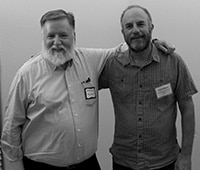
Morrison & Foerster took on the original Mono Lake Public Trust case, pro bono, in 1979, providing the attorneys, resources, and legal sophistication needed to turn a good idea into a California Supreme Court victory for the lake. Bryan Wilson continued the firm’s work on the Mono Lake cases with a special focus on the streams—making the case for restoration with key witness Elden Vestal, a biologist who provided vast documentation of the rich abundance of the pre-diversion streams. Patrick Flinn, also of Morrison & Foerster at the time, worked with great skill to make the argument that protecting the public trust at Mono Lake was feasible by developing the case that Los Angeles had available, reasonable alternative supplies of water, a task that involved many details of urban water use and conservation. He also took the lead on air quality arguments before the State Water Board, firmly establishing the health risks that result from dust that blows off the exposed lakebed.
2014: Hap Dunning
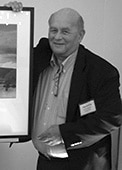
In Storm Over Mono, author John Hart wrote, “The notion that [the public trust doctrine] might be applied to curtail water rights was truly novel. There appears to have been just one other person in California in the mid-1970s who was aware of this possibility: Harrison C. Dunning, a law professor at the University of California at Davis….” Since the 1970s, Hap has been a leading voice for California water law reform. In 1980 he organized a law conference on the public trust that would later prove incredibly influential in the California Supreme Court’s 1983 public trust decision. That decision laid much of the groundwork for D1631, and the ongoing protection and restoration we see at Mono Lake today.
2013: Joseph Sax
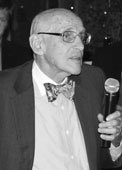
While teaching at the University of Michigan Law School, Professor Sax analyzed the public trust doctrine, publishing articles about it in 1970 and 1980. In his innovative scholarship he translated the doctrine into a modern form, as a check on the performance of regulatory agencies. His articles on the public trust helped persuade the California Supreme Court to reopen Los Angeles’ water rights to protect and repair Mono Lake and its tributaries.
2011: Mary Scoonover
Mary Scoonover came to the Mono Lake legal fight on behalf of the state in the early 1990s via her work in the California Attorney General’s Office, representing the state in the State Water Board hearings of 1994. Mary worked to transform the public trust duties established by the court into functioning water policy, and Mono Lake’s visible recovery today is directly linked to her work as a spokesperson for the public trust.
2009: Richard Roos-Collins
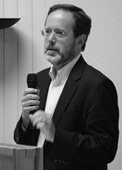
Richard Roos-Collins has been California Trout’s lead attorney from October 1991 to the present, encountering the Mono Lake story as hearings before the State Water Board were picking up steam. His challenge was to take the public trust duties established by the court and transform them into effectively functioning water policy. Richard’s courteous yet formidable presence in the courtroom helped win many victories for the Mono Basin.
2007: Jim Canaday
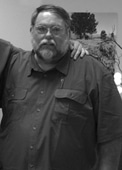
State Water Resources Control Board staff member Jim Canaday was assigned to the Mono Lake case in the early 1990s and guided the hearings, decisions, and implementation through 2007 with integrity and professionalism, always with the public trust in mind. He made sure that thorough and detailed science was the centerpiece, and his approach was always principled and collaborative. Every Mono Lake issue of dispute that arose on Jim’s watch was successfully solved.
2006: Andrea Mead Lawrence
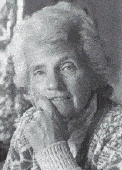
Andrea Mead Lawrence moved to Mammoth Lakes in 1968, and from the outset she was dedicated to finding the path between protecting the Eastern Sierra environment and protecting the communities of people who live and work in the region. Andrea served 16 years on the Mono County Board of Supervisors, and throughout her service to the people and environment of Mono County she was a wise friend of Mono Lake and the Mono Basin. Andrea founded the Andrea Lawrence Institute for Mountains and Rivers, and served on the Mono Lake Committee Board of Directors until her passing in 2009.
2005: Richard Riordan
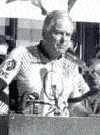
Mayor Riordan was elected the 39th mayor of Los Angeles in June 1993, arriving in the office at an important time for the Mono Lake Committee. The very next year, he, the City Council, and the Los Angeles Department of Water and Power (DWP) Commission had to make a decision whether or not to appeal the State Water Resources Control Board’s decision that ordered DWP to re-water Mono Basin streams and wetlands for fish and wildlife and raise the lake level to an ecologically sound level. Fortunately for Mono Lake, the City’s decision was to accept the Water Board order.
2004: Dennis Tito
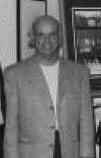
Dennis Tito, Founder, CEO, and Chairman of the Board of Directors of Wilshire Associates, Inc., and former Chairman of the Los Angeles Department of Water and Power Commission, received the 2004 Mono Lake Committee Defender of the Trust Award. This award is in recognition of his skill in working with the City of Los Angeles, the City Council of Los Angeles, and his fellow Commissioners to gain their acceptance of the 1994 State Water Resource Control Board order that DWP share its water with Mono Lake. It was important to have someone within the Department of Water and Power agree that the legal battles should end and conservation and restoration should begin. Mr. Tito’s pioneering role as the first space tourist parallels his willingness to pioneer a new relationship between DWP and the Mono Lake Committee.
2003: Sally Gaines
Sally was born in 1952 with the last name Judy, a fourth generation Californian and raised in Menlo Park, California. She earned a B.S. degree from UC Davis in Environmental Planning and Management, specializing in Environmental Interpretation. During her college years she met David Gaines and joined him and his birding friends to see Mono Lake for the first time in 1974. In 1976 Sally was part of the undergraduate research team that conducted the first ecological study of Mono Lake, where they proved how much would be lost if Mono Lake dried up. In 1978, Sally and Dave moved to Lee Vining as founders and volunteer staff of the fledgling Mono Lake Committee. Sally and David had a daughter in 1983 and a son 2 years later. Sally has lived in Mammoth since 1996. Sally continues to provide invaluable guidance to the Mono Lake Committee as a member of its Board of Directors.
2002: Rick Lehman and Phil Isenberg
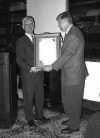
Rick Lehman
As a Congressman, Rick Lehman pushed legislation to create the Mono Basin National Forest Scenic Area and later made sure that federal air pollution laws covered dust storms at Mono Lake. Through the Scenic Area, millions of people learned about the importance of Mono Lake to the nation and the world.
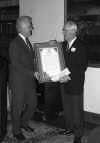
Phil Isenberg
As a California Assemblyman, Phil Isenberg co-authored the Environmental Water Act of 1989 (AB 444), offering $60 million in funding to help Los Angeles develop new water supplies to replace the Mono Basin diversions. By providing funding for the development of replacement water supplies, the State initiated a problem solving approach that not only ensured Los Angeles would have reliable, adequate water supplies, but also assured that Mono Lake’s protection would not harm the San Francisco Bay Delta or any other place.
2001: Stan Eller and California Trout
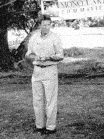
Stan Eller
Mono County Assistant District Attorney in 1984. In keeping with Fish and Game Code Section 5937, he sent two sheriff’s deputies to warn the Los Angeles Department of Water and Power not to touch the valve that would turn off Rush Creek, thus raising the legal importance of that code and defending the Public Trust at Rush Creek.
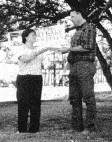
California Trout
A conservation group which took leadership in the legal battle to enforce on Rush Creek the Fish and Game Code 5937, which forbids dewatering creeks below dams. Their partnership with the Mono Lake Committee and the National Audubon Society achieved legal victories that led to the landmark Mono Lake decision of the State Water Resources Control Board in 1994.
2000: George Miller
California Congressman, who championed federal legislation for water conservation and water recycling, helping to convince Los Angeles’ political leaders that there would still be water for the city if Mono Lake was protected.
1999: Zev Yaroslavsky
Los Angeles County Supervisor Zev Yaroslavsky was one of the first leaders within the City of Los Angeles to advocate for Mono Lake’s preservation. Serving on the Los Angeles City Council from 1975-1993, he also played a critical role in helping secure Federal and State funds for retrofitting low-flow toilets, water recycling, and other conservation programs to replace the water being used now to restore Mono Lake and Mono Basin streams and wetlands.
1998: Ruth Galanter
Los Angeles City Councilwoman since 1987. Galanter was instrumental in negotiations between the Department of Water and Power and the Mono Lake Committee, resulting in the successful application of state and federal funding to find replacement water sources for Mono Basin diversions. She has also crafted ordinances to install ultra-low-flush toilets in all new construction projects, and in all homes and apartments before resale.
1997: Martha Davis
Executive director of the Mono Lake Committee from 1984-1996. Davis came to the Committee in 1983 as the legislative representative and became executive director within a few months. Under her direction the Mono Lake Committee made tremendous strides in both the courtroom and in the legislature. She currently serves on our Board of Directors.
1995: Bruce Dodge and Jan Stevens
Bruce Dodge
Attorney with Morrison and Foerster of San Francisco. Dodge has been the Committee’s lead attorney since the inception of the Mono Lake litigation, and was the one to convince Morrison and Foerster to work on the Mono Lake case on a pro bono basis.
Jan Stevens
Senior Assistant for the Land Law section of the California Attorney General’s office and expert on the Public Trust Doctrine, who convinced the State Lands Commission and the Department of Parks and Recreation to become a party to Mono Lake litigation, participate in the preliminary injunction, and take an active role in the State Water Resources Control Board hearings.
1994: George Peyton
Attorney, former director of the National Audubon Society. Peyton rallied National Audubon Society (NAS) behind the original Public Trust Lawsuit in 1979, and convinced NAS to continue its involvement in the Mono Lake cause.
1993: Harold Gilliam
Author, environmental writer for the San Francisco Examiner. Gilliam’s article, “The Destruction of Mono Lake Is on Schedule” appeared in the paper’s Sunday edition in March, 1979, and was one of the first articles to draw attention to Mono Lake’s plight.
Top photo by Juniper Bishop.
